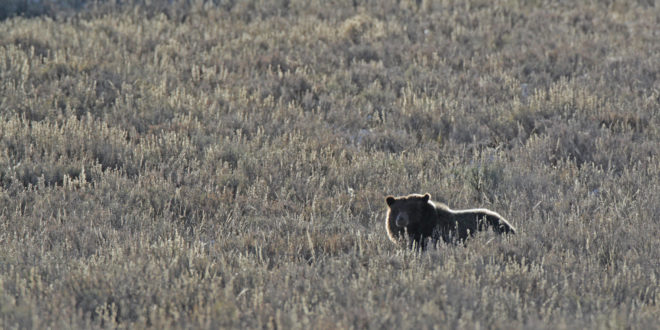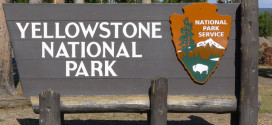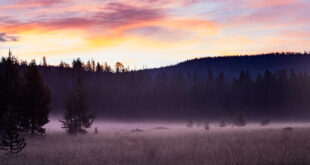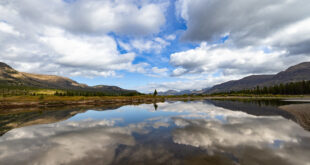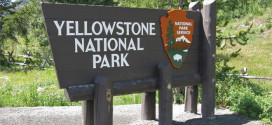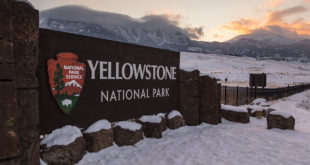A coalition of tribal and conservation groups have asked a federal judge to invalidate the decision to remove protections from Yellowstone grizzly bears.
The news comes after the U.S. Fish and Wildlife Service announced it would be revisiting the decision, following a court ruling related to protections for wolves in the Great Lakes region.
In that ruling, a judge in the U.S. Circuit Court of Appeals in Washington D.C. said the agency failed to consider “the impact the move would have on wolf recovery elsewhere in the country.”
The agency is accepting public comment on the matter, which you can submit through Regulations.gov or by mail/hand-delivery to the following address:
Public Comments Processing
ATTN: FWS-R6-ES-2017-0089
U.S. Fish and Wildlife Service, MS: BPHC
5275 Leesburg Pike, Falls Church, VA 22041-3803
The coalition opposing Yellowstone grizzly delisting, which includes the Northern Cheyenne Tribe, Sierra Club, Center for Biological Diversity, and National Parks Conservation Association, argue the Great Lakes wolf ruling, alongside the USFWS’ decision to revisit the matter, warrants reinstatement of federal protections for Yellowstone grizzly bears. From a coalition press release:
“This attempt by the Fish and Wildlife Service to reopen a public comment period and subsequently paper over its flawed delisting rule illustrates how politics has trumped science in regard to protecting Greater Yellowstone’s grizzly bears,” said Bonnie Rice, Senior Representative for Sierra Club’s Our Wild America campaign in the Greater Yellowstone region. “The Service’s decision to remove endangered species protections for Yellowstone grizzlies was clearly premature. The delisting rule should be withdrawn until the Service can get it right and make a determination that passes legal and scientific muster.”
“The Trump administration is trying to put a band-aid on a gaping hole in its decision to strip protections from Yellowstone’s precious bears,” said Noah Greenwald, endangered species director at the Center for Biological Diversity. “Grizzly bears occupy less than 5 percent of their former range in the lower 48 states, so they’re obviously nowhere near recovered. Attempting to delist the Yellowstone bears and expose them to trophy hunting without considering grizzlies’ poor status overall is simply ludicrous.”
“The Fish and Wildlife Service’s refusal to withdraw the delisting while publicly questioning the validity of their own decision is a disservice to the American people. Ignoring important legal and scientific concerns underscores the Department of Interior’s willingness to jeopardize the long-term health of Yellowstone and Grand Teton national park grizzlies” added Stephanie Adams, Yellowstone Program Manager for National Parks Conservation Association.
Earthjustice attorney Timothy Preso—representing the coalition in court—filed a brief in court January 8, 2017, arguing that, “in carving out and delisting the Yellowstone-area grizzly population, the Service violated the [Endangered Species Act] by failing to consider the impact of its action on the previously listed grizzly bear entity—the lower-48 grizzly bear population—including by evaluating whether the remnant of that entity left beyond by the [Greater Yellowstone Ecosystem] is protectable under the ESA.”
The USFWS previously announced their decision in June 2017, following a little over two years of debate and public comment. The states of Montana, Wyoming, and Idaho assumed management of Yellowstone-area grizzlies in August 2017. The coalition filed suit the same month.
Another coalition, comprising several North American tribal groups, have also filed suit against the USFWS’ grizzly decision, arguing the decision is untenable on religious grounds.
The agency previously delisted Yellowstone grizzly bears in 2007, but protections were reinstated in 2009 when a federal judge ruled the agency failed to consider the impact of climate change on grizzly food sources like whitebark pine.
Grizzly advocates argue the Yellowstone grizzly (and grizzlies as a whole) cannot be considered recovered until it regains more of its former range and reconnects with other isolated grizzly populations—such as the population living within the Northern Continental Divide Ecosystem in northern Montana.
New research suggests Yellowstone grizzlies have several viable pathways between the two ecosystems, spurring hope the populations will reunite within a matter of years
 Yellowstone Insider Your Complete Guide to America's First National Park
Yellowstone Insider Your Complete Guide to America's First National Park
